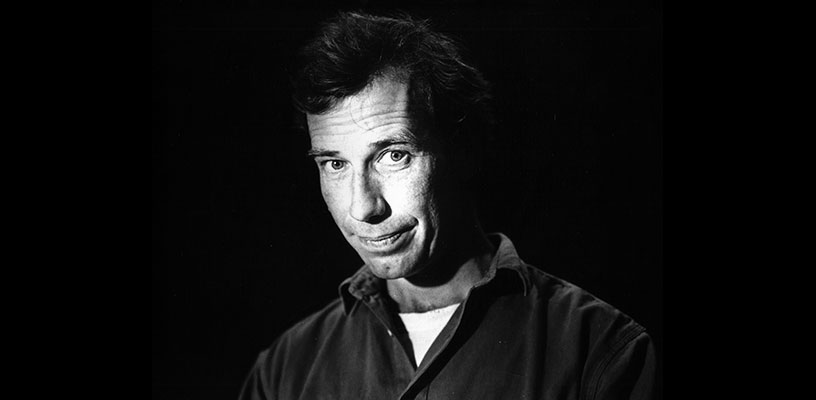Jonathan Lloyd (1948-2025): a maverick composer remembered

Boosey & Hawkes marks the death of composer Jonathan Lloyd, a unique figure in the 1980s and ‘90s whose Puckish invention and often-anarchic collision of cultures belied a profound fascination with music’s temporal ambiguities.
Boosey & Hawkes pays tribute to Jonathan Lloyd who passed away in July this year, aged 76, a composer whose music skillfully fused sophisticated compositional techniques with allusions to poetry and popular culture. In the 1980s and ‘90s Lloyd was commissioned by leading UK performing groups including the BBC Symphony Orchestra and London Sinfonietta, creating works that often stretched boundaries in terms of virtuosity and the then-rigid division of musical styles.
Lloyd was a versatile composer in terms of genre – from small-scale chamber or community works, up to large-scale symphonic scores – yet everything was approached from a highly individualistic viewpoint. In an essay from 1998, pianist and radio producer Stephen Plaistow noted how “…his music has challenged the formalities and economics of traditional concert life. But in bringing together the arcane and the popular, the co-operative and the anarchic, in new ways he has frequently given us a fresh angle on musical discourse.”
Studying at the Royal College of Music in London, Lloyd travelled in 1973 to Tanglewood in the USA where his Scattered Ruins won the Koussevitsky Prize. Wider recognition came in 1981 with the BBC premiere of Toward the Whitening Dawn leading to a series of performances and commissions from the London Sinfonietta including a Viola Concerto and Waiting for Gozo and in 1984 a highly unorthodox Mass for the London Sinfonietta Voices. The 1980s saw interest in Lloyd’s music widening with performances at major festivals including the BBC Proms, Aldeburgh, Huddersfield and Donaueschingen.
Lloyd’s series of five symphonies, which can be regarded as a core sequence in his output, explode the classical form through different dimensions and approaches: Symphony No.1 was premiered by Simon Rattle and the City of Birmingham Symphony Orchestra, Symphony No.4 was written for the BBC Symphony Orchestra, and the ensemble-sized Symphony No.5 was commissioned by the Birmingham Contemporary Music Group. Tolerance, effectively a concerto for orchestra, was premiered by the London Philharmonic Orchestra under Franz Welser-Möst in 1994.
Central to Lloyd’s aesthetic and originality were his exploration of time, often observed in everyday life experiences or in other art forms. For instance his ensemble work Waiting for Gozo recalled a delayed ferry from Malta to Gozo where the frustrated departure was reimagined as a Beckettian experience of the ‘infinite present’, with the state of limbo denying traditional expectations of musical development. Similarly his new score for Hitchcock's silent classic Blackmail, which was toured in Europe and the USA, found musical parallels to match the cinematic master’s manipulation of his audience’s perception of time and reality. Lloyd’s own sense of playfulness and humour, often gently ironic, as heard across his free-spirited output, continues to be much valued.
Recordings of the interlinked Symphony No.2 and Mass can be heard on the Largo label, performed by the SWF Symphony Orchestra and the London Sinfonietta Voices, and Symphony No.4, featuring the BBC Symphony Orchestra under Martyn Brabbins, was issued on NMC.
David Allenby, 2025
> Read an obituary tribute to Jonathan Lloyd in The Guardian
> Listen to Jonathan Lloyd’s music on Spotify
> Explore Jonathan Lloyd’s works
> Further information on Work: Symphony No.4
Photo: Bo Lutoslawski (1988)
